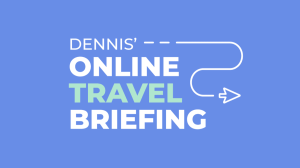Hype Over New Online Travel Disruptors Is So Overblown
Skift Take

Dennis' Online Travel Briefing
Editor’s Note: Every Wednesday, Executive Editor and online travel rockstar Dennis Schaal will bring readers exclusive reporting and insight into the business of online travel and digital booking, and how this sector has an impact across the travel industry.Online Travel This Week
"The OTAs will still have a role to play."
This sentence came from an AllianceBernstein research note this week about "OTAS: In Flux."
There is much to agree with in the research note. The online travel agencies are indeed changing. As the note points out, Expedia is trying to get more out of the business-to-business side of its portfolio, and Airbnb is fine-tuning how travelers search for properties, although there have been a lot of complaints from hosts about the awkwardness of Airbnb's efforts.
But to state that online travel agencies will merely still have a role to play because of business shifts and the rise of new entrants is almost laughable. When I started to write about global distribution systems in 2000, I was repeatably warned that their days were numbered. As with online travel agencies, the global distribution systems are still here and are vital to the travel industry behind the scenes.
The big online travel agencies may lose share in coming years, but they will continue to have a strong p

